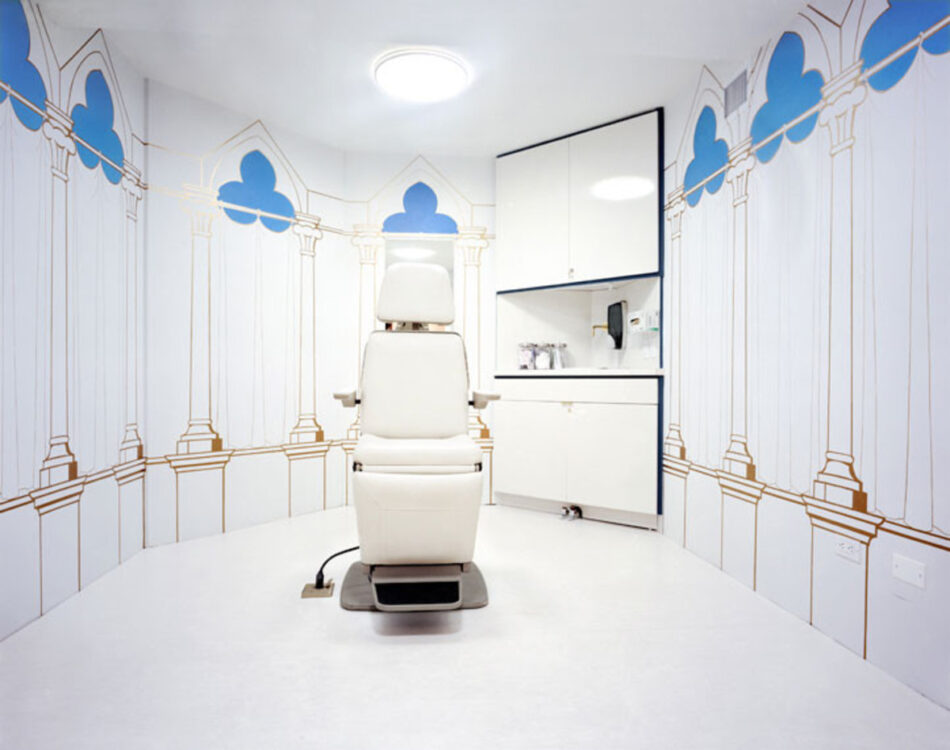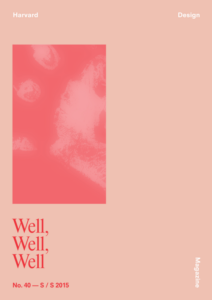Out-of-Body Experiences: The Polis in Sickness and in Health
The city incubates disease. Thucydides already knew that epidemiological fact well in the 5th century BCE, blaming urban crowding for the intensity of the plague that decimated Athens. The crush of bodies in Thucydides’s account is not just the cause but the figure of a disease that rages without rules, creating social chaos in its wake. Thucydides, himself a survivor, nevertheless surveys the scene—corpses haphazardly piled up, the dead overflowing the gods’ sanctuaries—with dispassion. If Ebola has re-acquainted us with the visual slide from shantytown to mass grave, it has also reminded us that distance can make us complicit in the spectacle of bodies as a deindividuated heap.
The insalubriousness of the city is an old motif. But we can also ask: Does the city also incubate practices of healing? Herodotus reports in his Histories that the Babylonians have no doctors but instead prop up the sick in the public square. Those passing by are obliged to ask what’s wrong and, if they know anything of the disease, to give the patient advice. In Herodotus’s utopian fantasy (unsupported by historical evidence), Babylonian medicine is nothing more than a social contract for generating crowd-sourced therapeutic knowledge that, pre-Internet, relies on a particular kind of space: densely urban, centrally located, structured by mutual obligation. In this scenario, the sick body in the public domain isn’t a vector of disease; it’s the point where the knowledge of the collective converges to create health. The method’s success requires not just shared space and shared language but interchangeable bodies: deindividuation recuperated as a likeness that produces a form of citizenship.
The citizenship of the sick takes a more pessimistic turn in Plato’s The Republic. Socrates deliberately limits the role of medicine in his ideal city, pointing to the proliferation of doctors in Athens as a symptom of an urban society corrupted by lifestyle diseases. In the old days, Socrates says, doctors just cured wounds. These days, doctors minister to perpetual patients. Even healthy men succumb to “the excessive care of the body” in the face of anxiety about every twinge, bred by the medicalization of daily life. Wellness has become a solipsistic state of vigilance that destroys the fabric of political life. Literary scholar Catherine Belling has called hypochondria “the distinctive postmodern illness,” a product of biomedicine’s epistemic optimism, its pervasive presence in our lives, and suspicions about its authority. But if a medicine of the body is not even modern, let alone postmodern, neither is the anxiety it generates. The hypochondria generated by biomedicine is, in an important sense, ancient, and so, too, Socrates suggests, is its subject, alienated from self and polis alike.

Plato’s dystopian vision of wellness hijacked by modern medicine recognizes that to be in a body also means to be outside that body. We’re blind to so much of what goes on inside of us until something goes wrong, or seems to be going wrong, at which point the body is reified as an object requiring the knowledge of others, most likely at a cost.
Just as the conditions of the city can intensify an epidemic, then, urban density, interdependence, and a thriving marketplace can intensify the social relations that develop around the crisis of the symptom. In the pursuit of health, the city becomes a site for imagining collectivity and interdependence, as well as the collapse of autonomy. For Herodotus, the free and reciprocal exchange of medical knowledge at the heart of the city signifies a flourishing community. By contrast, in The Republic, the surfeit of doctors indicates a city whose citizens have failed to take responsibility for the care of the self and the life of the polis.
These scenes, staged in and through a polis haunted by the specters of commodified medicine and unfree subjects, hyperbolically imagine different socialities created around a body turned inside out by the wish to be well. Reading Plato, it’s easy to recognize our own worries about rampant medicalization, the monetization of health, and biomedicine’s inability to distinguish between life and the good life. But we might also worry about the alternative models of health care envisioned by Plato and Herodotus. For in seeking to recuperate the alienated body by incorporating it into the city and eliminating expert medical knowledge, they do not so much heal a split between subject and object as ignore it. The ancient texts remind us that the real challenge is to create spaces for medicine—virtual and actual, political and ethical—that face head- on the complexity of the biological subject as the condition of individual and collective wellness.
Brooke Holmes is Professor of Classics at Princeton University. Her research explores the Greco-Roman roots of Western ideas about the physical body, the natural world, matter, and the nonhuman. She is the author of The Symptom and the Subject: The Emergence of the Physical Body in Ancient Greece (2010).
